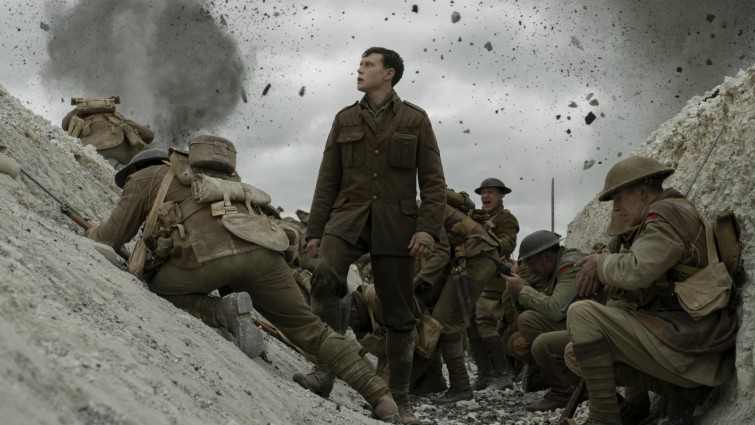

Member review

1917
Two young soldiers during WW1 are sent into enemy territory to deliver a message that could prevent the death of hundreds.
Certificate
Duration119 mins
Review by
-
 Drishya, 16
Drishya, 16 - 6 reviews
1917 - a visionary achievement that leaves no man standing.
War films are truly the gift that keeps on giving; over time, we have been blessed with exceptional motion pictures that expose the many facets of conflict and remind us of why we must prevent it at all costs. Pictures like Schindler’s List present the civilian side of war while the likes of Hacksaw Ridge and Dunkirk delve into the carnage. The war genre’s newest addition, 1917, offers audiences a new kind of epic. Inspired by his own grandfather’s experiences of World War One, Sam Mendes directs the gripping story of two soldiers ordered to deliver an urgent message across No Man’s Land. Prior to watching 1917, I confess that I hadn’t seen the popular behind-the-scenes clip of how they shot the film, nor the trailer. To be totally honest, I hadn’t even bothered to read a Wiki synopsis. I went into the theatre completely void of all knowledge, as if it was a blind date between me and the film – we’ll definitely be seeing each other again.
1917 glides sensationally into the grit of war with its sheer technical and visual perfection. Not at all gimmicky, the one-shot style of the film is executed stunningly well and lends the treacherous journey, a mesmeric sense of constant, visceral movement that forces watchers to follow the fight, locking in Roger Deakins’ second Oscar win. This one-take approach makes sense in the context of 1917 and ultimately conceives some of cinema’s most captivating shots. In particular, the night scene in the town of Ecoust is exquisite; accompanied by Thomas Newman’s grand score and the golden flares dropping overhead, this scene is a beautiful nightmare, managing to have a magical feeling so rare for a war film. The final battle charge is also jaw-dropping and coming from someone who hadn’t seen even a glimpse of it before the movie, I was gobsmacked. 1917, as so many other war films, offers audiences an immersive theatrical experience that many other genres cannot promise. This film must be watched in a theatre, on the biggest possible screen.
George MacKay gives the most underrated performance of this award season as Lance Corporal Schofield. This character is tested strenuously in the most hellish of conditions and McKay conveys Schofield’s raw emotions so poignantly. Dean-Charles Chapman delivers a commendable performance as Lance Corporal Blake, adding to the humanity within the story. There are also some formidable cameos littered throughout the movie that I wasn’t expecting, with the likes of Benedict Cumberbatch and Colin Firth appearing fittingly as generals, but Andrew Scott undoubtedly being the best one.
The premise of 1917 is simple, but its achievements are amazing. It’s an epic that manages to be anti-war at heart, whilst honouring moments of heroism and breath-taking humanity. From its haunting score and visual marvel, to its unparalleled message, 1917 is a timeless piece of filmmaking and as it reminds us of the brilliance of cinema and the agony of the past, is the last man standing.